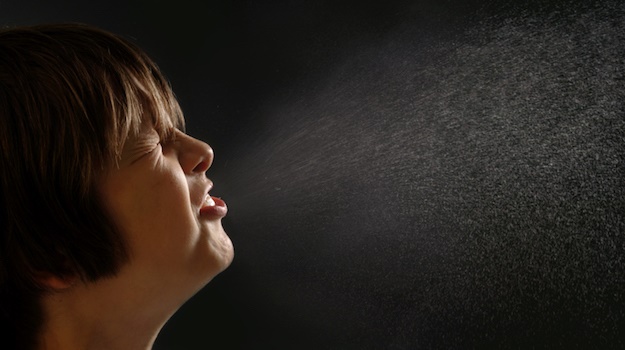
A letter from a Cape Town primary school, warning parents that they have had a few cases of learners diagnosed with the Adenovirus, and several in the community with Swine Flu, has been circulating on Facebook. In the letter, the school urges parents to take their kids to the doctor if they run a high fever and ask the doctor to test for these viruses.
Parent24 contacted the Western Cape Department of Health for comment. Mark van der Heever sent us an official statement from the Department, reassuring parents that both the H1N1 virus and the Adenoviruses cluster are common viruses and part of the winter flu season.
"Our call to school principals and parents is to familiarise themselves with the information provided," he says. "There is no need for concern as these viruses are part of the viruses in circulation."
He stresses that there is no "outbreak".
"These are not notifiable diseases therefore we cannot confirm how many cases there are," he says. "The Department has received telephonic reports of cases and these are currently being followed up through our health facilities in addressing these and other communicable diseases as appropriate."
In addition, the Department is currently busy with a vaccination drive and has administered 82 937 doses flu vaccines to high-risk groups.
Does your child need antibiotics? Here's how to tell
So what are the facts?
H1N1 (Swine Flu): the facts
Flu season is upon us. The National Institute for Communicable Diseases (NICD) announced on 14 June that the 2017 influenza (flu) season had officially begun. Among the circulating viruses this season are influenza type A viruses, including the H1N1 subtype.
The swine flu behaves just like any other normal seasonal flu strain and its symptoms, severity and treatment is the same as for seasonal flu.
Common symptoms of Swine Flu
Common symptoms of flu include fever, dry cough, sore throat, headache, fatigue, muscle pain and body aches, cold shivers, and hot sweats. Some people may have vomiting and diarrhoea. Those experiencing symptoms may seek advice from their health care provider.
How is it spread?
The Swine Flu virus is spread mainly by droplets when people with the flu cough, sneeze or talk. These droplets can land in the mouths or noses of people who are close by, causing infection. You can also catch flu by touching a surface or an object that has flu virus on it, including influenza A (H1N1).
People at increased risk of developing severe influenza include pregnant women, young children, the elderly, and people with certain health conditions, such as heart, lung or kidney disease, nervous system disorders, or a weakened immune system.
Get the flu shot
Flu vaccine remains the primary means for preventing seasonal flu infection. The 2017 influenza vaccine has been available in South Africa since the middle of April and high risk groups (as identified above) can access it at local clinics and private providers (pharmacies and private practitioners).
Adenoviruses: the facts
These are a group of viruses known to cause a wide range of illnesses including the common cold, sore throat, bronchitis, fever, diarrhoea, pink eye, skin rashes, bladder infections, gastroenteritis, neurologic disease, and pneumonia.
Symptoms:
The symptoms of adenoviral infection are similar to flu symptoms, and are generally less severe. The prevention and control measures are also the same as those described for influenza above.
How are the viruses spread?
Adenoviruses are mostly spread via the same routes as influenza viruses, and in addition may be spread through an infected person’s stool.
Protect your family against swine flu, adenoviruses and other respiratory illnesses
Common sense prevails. To protect your family against this winter's viruses:
- Wash your hands often with soap and water.
- Cover your mouth and nose when coughing or sneezing. Coughing into the crook of the elbow helps to minimise the spread of droplets.
- Discard tissues in the bin or toilet.
- Avoid touching your eyes, nose, or mouth with unwashed hands.
- Avoid close contact with people who are sick.
- Stay home when you are sick.
- In the event someone should contract either swine flu or adenovirus, there is appropriate medication available.
So although having the flu is no joke, and if not managed well can lead to secondary bacterial infections like bronchitis and pneumonia, the presence of swine flu and Adenoviruses in themselves aren't cause for concern.
Stay warm, eat well and stay well!
Read more:
Chronic coughs: are over-the-counter cough syrups a waste of money?
Self-medicating your sick child: is it too risky?
Your family's medicine cabinet checklist
Parents are more at risk of getting sick
Pregnant? Here's to a flu-free winter




 Publications
Publications
 Partners
Partners














